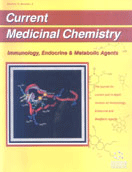Abstract
The atheroprotective effects of high density lipoprotein (HDL) have been established over the past several decades and this in turn has led to efforts to develop more effective and well-tolerated means for elevating this lipoprotein. The high levels of HDL associated with human deficiency of cholesteryl ester transfer protein (CETP) motivated the pharmaceutical industry to initiate programs throughout the 1990s aimed towards the inhibition of this transfer protein. Because the CETP mediated transfer of lipid from donor to acceptor lipoproteins appears to occur by a carrier mechanism there exists several means for achieving inhibition. These include interference with lipid binding to CETP and causing insufficient or excessive binding of CETP to its lipoprotein substrates. Many CETP inhibitors have now been identified and several mechanisms of inhibition are represented. Two of these synthetic inhibitors, JTT-705 and torcetrapib, have progressed into clinical trials. The results from these initial trials are consistent with prior reports regarding partial CETP deficiency in humans. For both inhibitors, whether administered as a monotherapy or in combination with a statin, a reduction in plasma CETP activity has resulted in an elevation of HDL, as well as a lowering of low density lipoprotein (LDL). Whether this class of agents will prove beneficial in the treatment and prevention of atherosclerosis awaits the results of longer trials. However, emerging data, including the role of the ABCG1/ABCG4 transporters in the efflux of cholesterol to mature HDL and the importance to reverse cholesterol transport of free cholesterol transport via HDL, reinforce the case for optimism.
Keywords: atherosclerosis, cetp, chd, cholesteryl ester transfer protein, hdl, torcetrapib
 1
1








